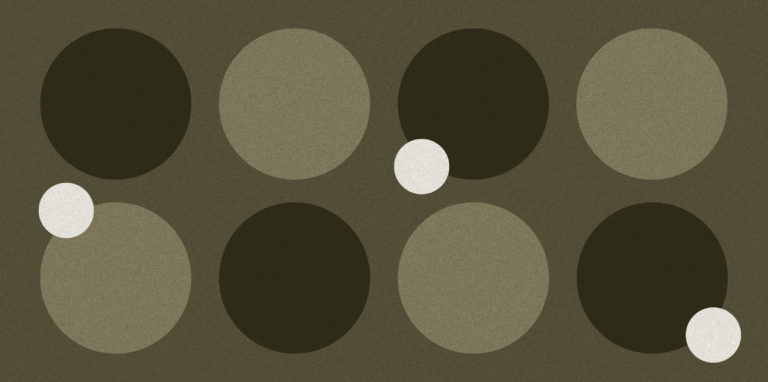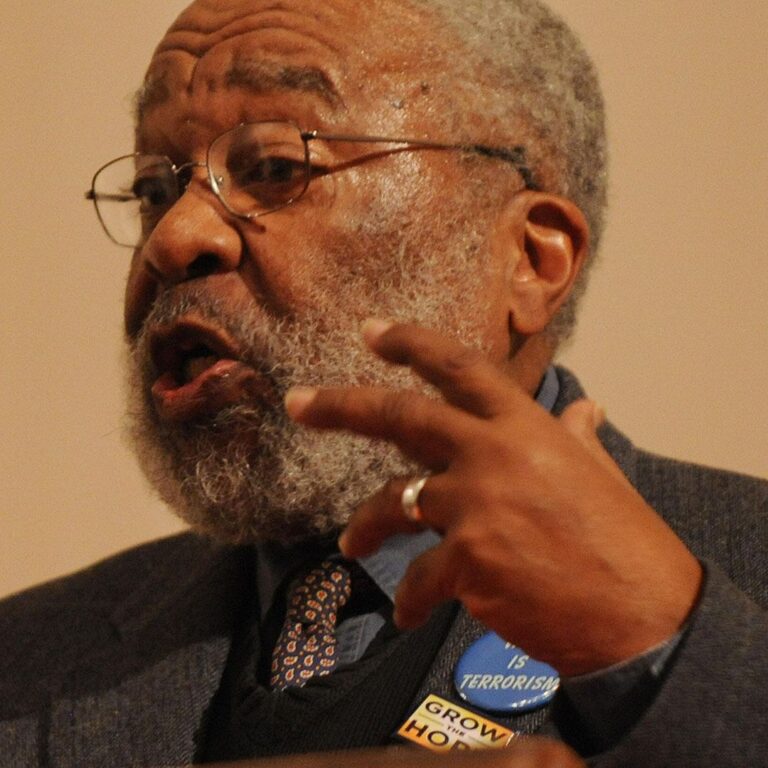Bearing Witness
With Krista
< Back to Retreat
Compassion takes on complexity as people together metabolize what it has been to move through these last years, who we are now — and openly and frankly bring their grief, pain, loss, and longing.
Question to Live
Am I, somewhere, openly metabolizing how the last few years have shaped me? |
Integration Step
Voice Questions as Maps and Guides“Our communal repository of questions may be the closest thing we have to maps and guides right now in a world that is without maps and guides.” – Krista Tippett With your conversation partner(s) for this retreat, give voice to the questions that are maps and guides for you — and work on them, hone them, question the questions themselves, set them intentionally to carry communally and return to for discernment and sharpening in the time ahead. |

Transcript
Welcome back. I may sound a little different than I did in the first session because I am now back home in our recording studio, and you will not hear car horns or motorcycles penetrating. I am back with the mother of all jetlags, but full of learning and gifts. Last time, I set the scene about the purpose of the Dharamsala gathering that became the occasion for these wisdom offerings — for this extended reflection on compassion and all its complexity. For these next sessions, I want to share things — more things — that I imbibed, observed, learned, that I carry with me into this world ahead, and that I invite you to ponder and carry in your way — in your world — alongside me.
I do want to offer a little context for the people around whom this gathering was actually organized, which was these compassionate leaders. They were called our fellows. Most of them were somewhere in their thirties or their early forties — into their careers. The cultures they came from and had been formed by, their countries of origin, and their countries of residence span from Tibet and the U.S., from Iraq to Romania, from India to Afghanistan, from Mexico to the Andes, and I’m not listing all of the places that were represented in that room. They were educators and entrepreneurs, therapists, healers, activists — there’s also a journalist. A group photo of this gathering looks like this planet that is unfolding.
Everyone there was at once deeply planted and formed by where they come from — where their parents come from, the lineage they’re part of — and they are all at home in the wide, wide world in a way that I believe is new in our species in this century. They were at once — and I would say also that these are characteristics of the wise and graceful lives who’ve been part of On Being — to be at once tender and fierce, creative and practical, strategic and soft. I would say, as a generalization, that they are turning their lives, their gifts towards what is life-giving and away from what is life-denying, in all of the complexity and particularity that takes on in the places they live and work.
These young humans actively invest in every mighty human resource in their position, and that includes friendships, and partnership, and love, and making beautiful things and experiences where that is possible. They draw on these kinds of resources and capacities of being human to keep themselves grounded and healthy.
What they modeled for me — and I think for all of us — is also to be completely faithful and frank about the struggle and the pain that they work with in the world and in themselves. At some point — to keep circling around to what this has to say to all the rest of us — at some point, I realized that what I was witnessing — bearing witness to — was a group of humans metabolizing these years in the life of the world: who we are now, what has shifted. It was such an important exercise, and I couldn’t help but be drawn along with it. It affirmed observations I’ve been making about how hard this is for us to do collectively.
We just don’t have space. I speak as an American when I say this — I want to be really clear on that and this was clear to me in this gathering too — but I think this is a bit of a universal human challenge to create space in our life together — even in our life close to the ground together — to grieve our losses, to name what has changed, and to metabolize what it means and how we choose to let it shape us.
It is a fact of life that we cannot — and look, we all know this in our, let’s just say, our relationships, our families of origin — we cannot walk with or work with or move beyond things in our midst that are not named — even when they’re in the middle of the room and in the middle of every dinner table and staring us in the face, but if we do not give voice to them and honor the fact that they are there.
Part of the exercise for the fellows in the days we spent together was also to formulate what they wanted to bring before His Holiness the Dalai Lama and what question they wanted to ask him.
Here’s another thing I observed — bore witness to — that landed in my life: the questions they brought were not questions to which answers can be given. In my vocabulary, in the vocabulary of On Being, they brought questions they are living. There was something so generative and fascinating and powerful about having this gathering, pondering these things together, but then sharing the questions with each other and working them through — and how the questions sharpened and evolved and refined. Not to say something new. Not to say something that the group had helped them to create, but that had helped them clarify, really bring into relief: What is that question that I am living?
As we close here, I’m going to share some of those questions that eventually were posed in the presence of the Dalai Lama and all of the rest of us. I think the invitation here is to take this as perhaps an interesting model — perhaps an experiment that you might try even in a pre-existing group in your life: a book club, a neighborhood group, a discussion group in your place of worship, the family table. Mine that story that is in us — but, we can probably articulate it more directly and more openly — of what we’ve been through, how we’ve changed, how the ground shook beneath our feet, what it did to us. Mine that for questions to live — questions we are probably already living with a lot of energy, but, perhaps, haven’t named as such.
I think our communal repository of questions may be the closest thing we have to maps and guides right now in a world that is without maps and guides.
In the next few sessions, I want to move into some of the tensions that arose in this gathering because that is also very important that we name and work with openly that this is complex — I’m not talking about something simple, but I am talking about something potentially redemptive. So, I’m going to leave you with some of the questions that rose up in this gathering. I’m paraphrasing a few of them, and I’m also joining some questions that came up in a few different ways, in a few different contexts. With that invitation that you formulate and speak: What is your version of this? What is rising up in you? What do these questions spark in you that you might spend some time clarifying, formulating, investigating with the raw materials of your world and your life?
Here are the questions: How can I find hope out of grief? Where can I direct my compassion when I’m torn between home and other places and passions my life has taken me to? How to prioritize compassion? I am engulfed by a feeling of powerlessness that I am not enough, not doing enough. How to overcome that feeling? How can I help people receive compassion and give compassion when they have not had an experience of love in their lives? How can I deal with fear and transform fear into compassion and into love? And finally, what is the beauty that I see in this moment in time that we are living in? How can I, in my community of fellowship, be in support of the flourishing of this beauty?
I’ll see you next time.
